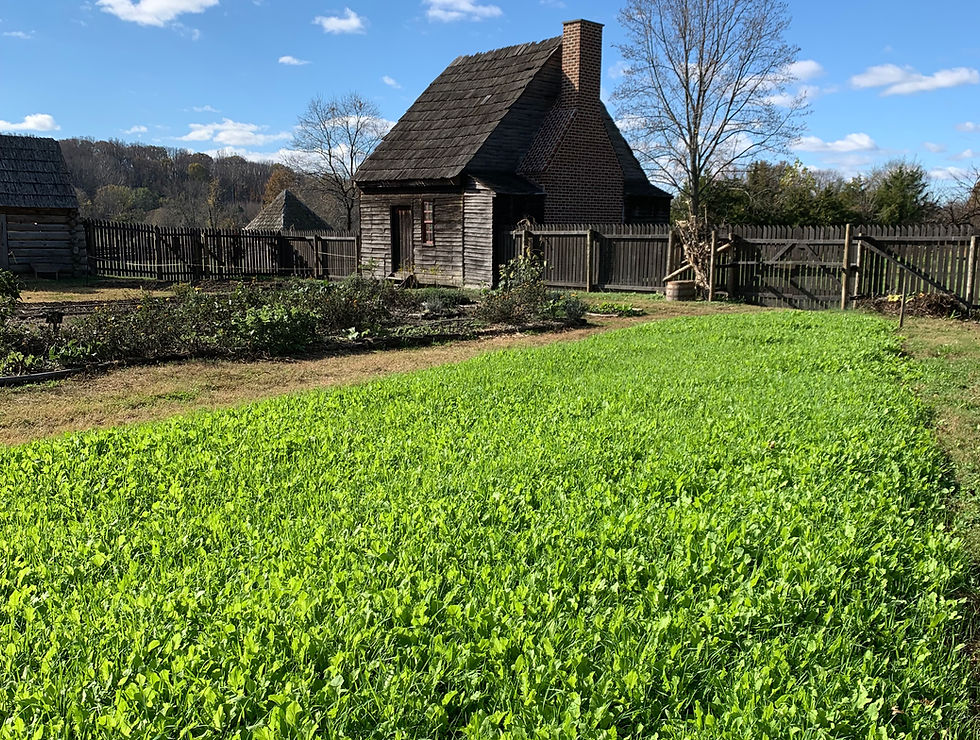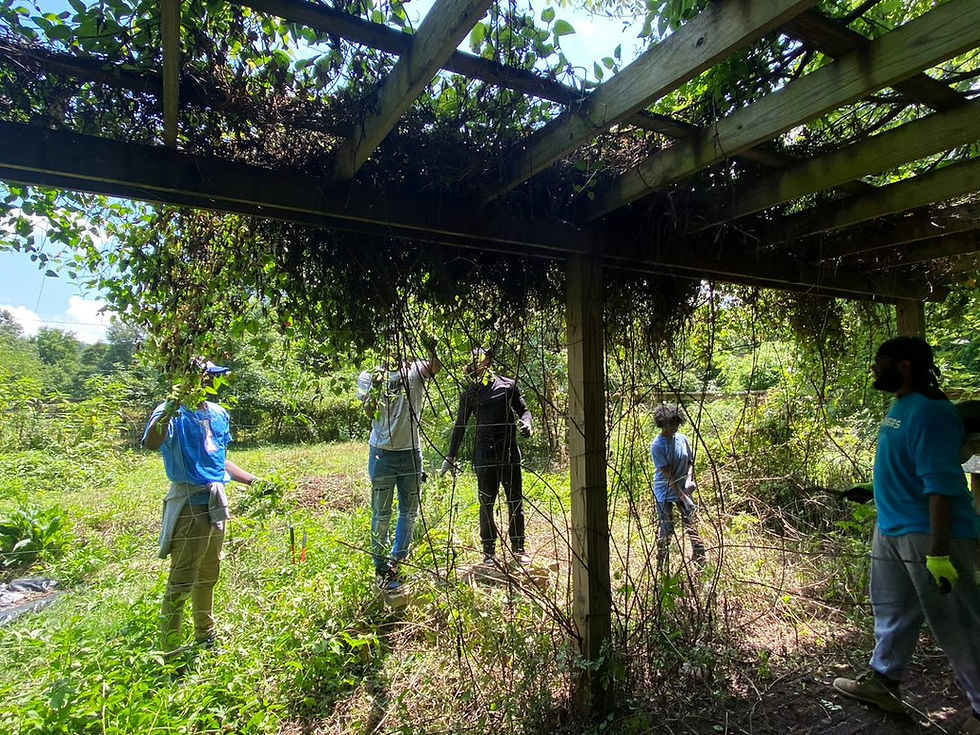Field Notes: Volume 16, Number 12
- Accokeek Foundation

- Jul 22, 2011
- 3 min read

This Week’s Harvest
Basil
Cilantro
Garlic
Chard
Onions
Cucumbers
Peppers
Summer Squash
Tomatoes
While we strive for consistency at the Ecosystem Farm, we ask that our SHAREholders please keep in mind that Friday and Tuesday harvests will not always be the same.
For your convenience, an exact harvest list will be posted in the packing shed.
This week, the Ecosystem Farm staff has—along with much of the state—focused their efforts on staying ahead of the heat wave. With a heat index of well over 100 degrees, the air is still and filled with the hum of cicadas and katydids. This means that the grove under which the crew often eats their lunch has provided a welcome respite from the sun. And it looks beautiful after a mulching last weekend by a group of FFA (Future Farmers of America) volunteers—this done after weeding the asparagus and strawberries. It never ceases to amaze us how quickly work can go when there are so many hands to help.
Clipping garlic has also provided the crew with a welcome sit-down-under-the-shade activity. Indeed, you will start to see garlic heads in your boxes this week, which should complement the abundance of tomatoes and basil that we’re well on our way to having.
Up Close With: Basil
The aromatic—and quite delicious—basil plants have flourished on the Ecosystem Farm, in bright greens and deep purples. Basil originated in India, and appears in several forms, from the sweet basil so commonly used in Italian cooking to the Thai and lemon basils that appear in Asian cuisine.
Like so many other herbs, basil’s use goes beyond the culinary: it has a long history of use in embalming and preserving in Egypt, and Amy Bess Miller’s Shaker Herbs: A History and a Compendium cites its use in allaying pain in the stomach and side, “with the added advantage of value in cooking and use as tea.” Of course, the beloved “king of herbs” has not always had a stellar reputation. In Blue Corn and Square Tomatoes, Rebecca Rupp writes: “Basil, since Roman times, was thought to grow better if planted with curses and hatred.”
Below, photos from this week on the Ecosystem Farm. Click images to enlarge, or view them on Flickr.
This Week’s Recipe: Basil Pesto
Recipe from The Washington Post
Ingredients:
3 cups fresh basil leaves, rinsed
1/4 cup pine nuts, toasted
2 cloves garlic
1 teaspoon freshly squeezed lemon juice
3/4 teaspoon salt
1 teaspoon black pepper
1/2 cup olive oil
1/2 cup grated Parmesan cheese
Directions:
In a food processor or blender, or using a large mortar, process or mash the basil, nuts, garlic, lemon juice, salt, and pepper until almost smooth. Slowly add the oil in a steady stream and mix until completely combined. Stir in the cheese. Taste and, if desired, adjust ingredients accordingly.
Upcoming Events
Organic Gardening Workshop: Planting For Fall: Saturday, July 23, 2011, 10:00 a.m. to 12:30 p.m., Education Center: Gardening doesn’t have to end with the summer. This course—part of our season-long Organic Gardening Workshop Series geared toward backyard gardeners—will provide you with the information needed to plant a fall garden. We will discuss what plants can tolerate cooler temperatures and how to time your fall planting schedule, as well as how to extend the growing season.
Film Series: FRESH: Tuesday, July 26, 2011, 6:30 to 9:00 p.m., Education Center: From learning about the lives of America’s young farmers to watching a waterman work the waters of the Chesapeake Bay, come see stories of sustainable agriculture and environmental conservation unfold on the silver screen. Our six-part documentary film series includes movies like The Last Boat Out, Homecoming, and The Greenhorns. This month, we will show FRESH, which celebrates the farmers, thinkers, and business people who are reinventing America’s food system. The film confronts food contamination, environmental pollution, and increasing human obesity on its search for healthier and more sustainable alternatives to industrial agriculture.
Colonial Day: Crime and Punishment in Colonial Maryland: Saturday, July 30, 2011, 5 to 7:30 p.m., National Colonial Farm: Join our Museum Theatre interns in their final performance of the summer! Our evening begins with an entertaining performance of a favorite 18th-century children’s story: “The History of Little Goody Two Shoes.” Then, enjoy songs and stories delivered from The Pillory, before watching a hilarious send-up of the classic “whodunits” in “Murder On the Potomac.”







